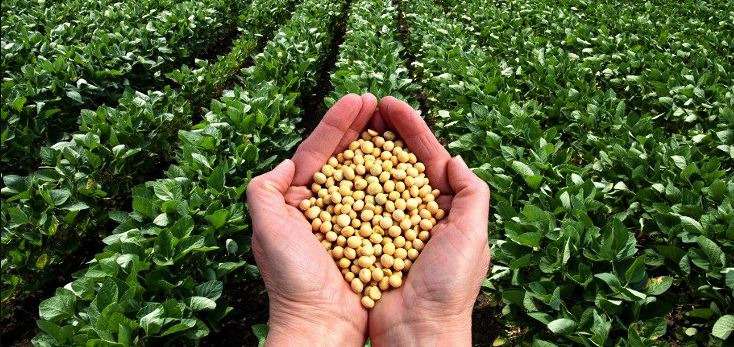NEPC trains 125 soybeans farmers on modern techniques in Kaduna

The Nigerian Export Promotion Council (NEPC), says it has trained soybeans farmers in Kaduna State on modern techniques to boost production for export.
The Head of the NEPC Smart Office in Kaduna, Mr Kasim Ahmed stated this in an interview with the News Agency of Nigeria (NAN), on the sideline of the training exercise, on Friday in Kaduna.
He said the goal was to enable farmers and other stakeholders along the soybeans value chain to tap the huge potential of the produce in the global market.
“The training was designed to enlighten and build the capacity of famers, processors and exporters on modern methods of soybeans production to boost yield.
“We also want to enlighten the farmers about the prospects of soybeans at the global market, following huge demand for the produce amidst short supply.
“Want to encourage them to increase production by showing them how to use modern techniques and how to process and add value to the produce to gain acceptability at the global market,” he said.
According to him, farmers are not getting the optimal value of soybeans exportation due to lack of value addition.
The training, he said, was to encourage farmers to adhere to Good Agricultural Practices (GAP), add value to the produce and take advantage of the demand at the global market.
Ahmed said that Nigeria currently ranked number four in the soybeans global production index with Kaduna state occupying the number one position in the country.
He, however, said that the country was getting less than two per cent market share value at the global market in spite of its production capacity.
He said the NEPC would continue to build the capacities of the farmers, processors and exporters, not only on soybeans but any other produce in line with its one-state-one-product initiative.
Ahmed said the council had identified at least one strategic export produce in each of the 36 states across the country, to enhance foreign exchange earnings.
He said that Kaduna state had identified ginger as its priority produce and soybeans as the alternate produce, adding that, “this is why we are supporting farmers to increase its production and value addition.
One of the participants, Mr Jamda Gbakbol, Operational Manager, Ariel Agricultural Innovations commended the gesture, adding that it would increase the yield of soybeans through the application of technology.
Gbakbol stressed the need for synergy across the soybeans value chain, to get the best out of the one-state-one-product initiative.
He said that Ariel Agricultural Innovations would be supporting the process by providing services in the areas of improved seeds and farm implements like the planters.
Also, Dr Hassan Dalhat, a soya beans farmer and a processor, said that insecurity and poor adoption of modern techniques was affecting soybeans production in Kaduna state.
Dalhat said that about 5,000 registered soybeans farmers in the state were producing below capacity due to the use of uncertified seeds, while others use grains instead of seeds.
He said that low yield had discouraged a lot of people from going into soybeans farming, adding that the introduction of modern techniques would correct a lot of mistakes by farmers.
“Most of the famers in the state are harvesting about 65 bags as against 20 bags per hectare with the introduction of modern techniques.
We are being trained on the technique for adoption this farming season and we are optimist for improved yield,” he said.
NAN reports that the event was attended by farmers, processors, representatives of export service providers, financial institutions, government agencies and other critical stakeholders.
